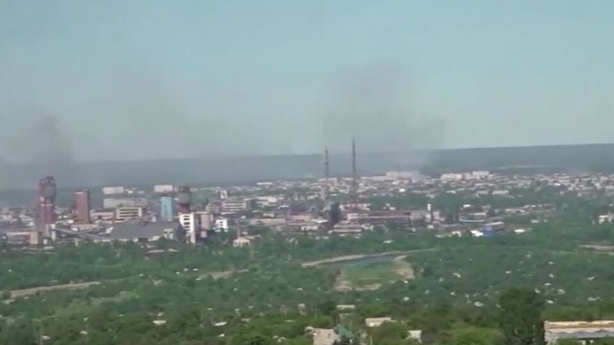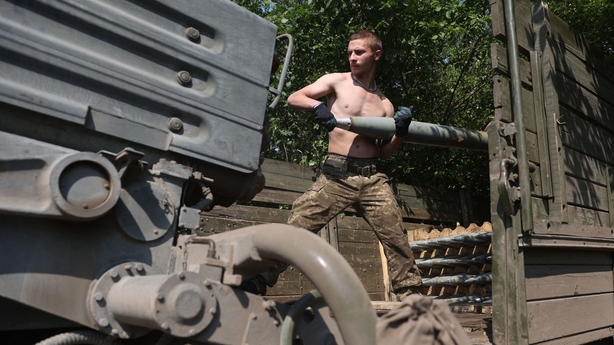Ukrainian forces remain in control of the Azot chemical plant in Sievierodonetsk and are "destroying" the Russian army in the town, the region's governor said today.
"The information about the blockade of the Azot plant is a lie," Serhiy Gaidai, governor of the Luhansk region partially controlled by pro-Russian separatists, said on the Telegram messaging app.
"Our forces are holding an industrial zone of Sievierodonetsk and are destroying the Russian army in the town," he wrote.
Sievierodonetsk, a small city in the region, has become the focus of Russia's advance in eastern Ukraine and one of the bloodiest flashpoints in a war now into its fourth month.
Ukraine has said some 800 people were hiding in several bomb shelters underneath the Azot plant, including about 200 employees and 600 residents of Sievierodonetsk.
Rodion Miroshnik, a Russian-backed representative of the self-proclaimed Luhansk People's Republic, said tonight that some civilians had started to leave.
"There are occasional exchanges of fire. ... They (the Ukrainian defenders) may still be holding several hundred civilians hostage," he said in an online post.
Reuters was not immediately able to verify his account.

Mr Miroshnik had earlier said 300 to 400 Ukrainian fighters were blockaded on the grounds of the plant along with civilians and had tried to negotiate their passage to Lysychansk, Sievierodonetsk's twin city.
Earlier, Russian shelling of the Azot plant caused a strong fire today after a leak of tonnes of oil, the regional governor said.
Speaking on national television, Serhiy Gaidai said non-stop fighting was raging in Sievierodonetsk and that Russian forces controlled most of the city but Ukraine controlled the Azot chemical plant.
Ukraine has appealed for swifter deliveries of heavy weapons from the West to turn the tide of the war, saying Russian forces have at least 10 times more artillery pieces than Ukrainian forces.
Read more:
Biden: Zelensky 'didn't want to hear' invasion warnings
Latest stories from Ukraine
Yet even when outgunned, Ukraine's army has proved more resilient than expected in early phases of fighting.
President Volodymyr Zelenskiy struck a defiant note today.
"We are definitely going to prevail in this war that Russia has started," he told a conference in Singapore via videolink. "It is on the battlefields in Ukraine that the future rules of this world are being decided."

After Russia was forced to scale back its initial more sweeping campaign goals, Moscow has turned to expanding control in the east, where pro-Russian separatists had already held a swathe of territory since 2014.
The eastern region known as the Donbas includes the provinces of Luhansk, where Sievierodonetsk lies, and Donetsk.
Russian strikes knocked out power supplies in Donetsk's two largest Ukrainian-controlled cities - Kramatorsk and Sloviansk - today, regional Governor Pavlo Kyrylenko wrote on the Telegram app.
Speaking later on national television, he said the move was part of a deliberate strategy to cut off electricity in towns in Donetsk that remain in Ukrainian hands.
"The enemy understands where he is hitting, and for what purpose," he said.
The battle for Sievierodonetsk and its destruction recall weeks of bombardment of the southern port city of Mariupol.
It was reduced to ruins before Russian forces took control of the city last month, with the last Ukrainian defenders surrendering from their redoubt in the Azovstal steel plant.
Also today, authorities in the Moscow-occupied city of Kherson in southern Ukraine handed out Russian passports to local residents for the first time, news agencies reported.
Russia's TASS agency says 23 Kherson residents received a Russian passport at a ceremony through a "simplified procedure" facilitated by a decree signed by Russian President Vladimir Putin in May.
Russia calls its actions a "special military operation" to disarm and "denazify" Ukraine, while Kyiv and its allies call it an unprovoked war of aggression to capture territory.

